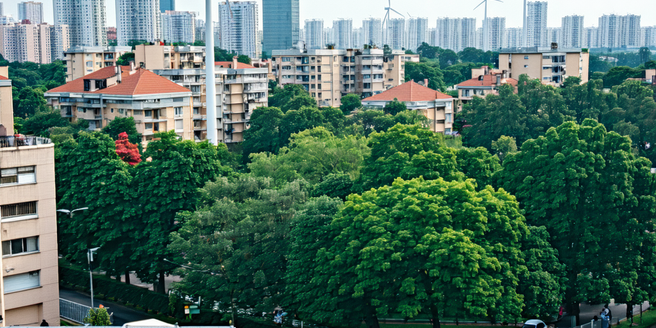Clean Tech In Urban Development

Introduction to Clean Technology in Urban Areas
As the global population increasingly shifts towards urban living, the importance of implementing clean technology in cities becomes ever more critical. Clean technology, or cleantech, involves the integration of environmentally sustainable products and services across various sectors. In urban areas, cleantech can enhance the quality of life by reducing pollution, minimizing waste, and promoting energy efficiency. The focus is not only on addressing environmental concerns but also on fostering economic growth and creating sustainable communities. Urban planners and policy-makers are leveraging advances in cleantech to reimagine city infrastructures, paving the way for smart cities that prioritize environmental health. The transition towards greener urban environments involves a collaborative effort among governments, businesses, and residents, all committed to investing in sustainable innovations that benefit the community and the planet.
The Role of Renewable Energy in Cities
Renewable energy is playing a transformative role in shaping the sustainable future of urban areas. Cities, with their high energy demands and intense carbon dioxide emissions, are turning to sources like solar, wind, and geothermal to power their infrastructures sustainably. Solar panels are being installed on rooftops, wind turbines strategically placed in city outskirts, and geothermal systems are being used to heat buildings. These renewable energy sources not only reduce reliance on fossil fuels but also mitigate air pollution and greenhouse gas emissions. Policymakers are incentivizing the adoption of renewables through subsidies and tax benefits, encouraging citizens and businesses alike to transition to clean energy. As cities continue to grow, integrating renewable energy into their core infrastructures will be crucial in meeting climate goals and ensuring a resilient and sustainable urban future.
Sustainable Transportation Solutions
Urban areas face substantial challenges with transportation, contributing significantly to pollution and carbon emissions. To address these issues, cities are increasingly adopting sustainable transportation solutions. Electric vehicles (EVs) are at the forefront, offering zero-emission alternatives to traditional cars. Public transportation systems are also evolving, with cities investing in electric buses and expanding metro networks to provide efficient, clean transit options. Bicycle-sharing schemes are encouraged to reduce reliance on fossil fuels, offering an eco-friendly means of urban commute. Smart transportation technologies, like traffic management systems, are optimizing flow and reducing congestion, thereby lowering emissions. The development of pedestrian-friendly infrastructure further encourages walking and cycling, promoting healthier lifestyles. These initiatives reflect a commitment to reducing the carbon footprint of city transportation systems and fostering a sustainable urban environment.
Green Building Practices and Innovations
In the face of urbanization, green building practices are essential for creating sustainable cities. Architects and developers are incorporating eco-friendly materials, energy-efficient systems, and sustainable design principles into the construction of new buildings. Innovations such as green roofs and walls, rainwater harvesting systems, and energy-efficient HVAC systems not only minimize environmental impact but also reduce operating costs. The use of sustainable materials like recycled steel, bamboo, and reclaimed wood is becoming mainstream. Certifications like LEED and BREEAM guide builders towards achieving high standards in sustainability. Retrofitting existing buildings with energy-efficient technologies further reduces their ecological footprint. These green practices contribute significantly to decreasing a city’s overall carbon emissions while promoting healthier indoor environments for residents. As urban populations grow, adopting green building practices is vital for sustainable development.
Future Trends in Urban Clean Tech
The future of urban clean technology is poised to revolutionize how we live, work, and interact with our environments. As smart cities rise, the integration of artificial intelligence, the Internet of Things (IoT), and big data will drive efficiency and sustainability. Areas like waste management will see innovations in recycling and composting technologies, reducing landfill reliance. Water conservation technologies will advance, utilizing smart systems for monitoring and reducing consumption. Energy grids will become more resilient, integrating decentralized renewable energy sources and advanced battery storage solutions. Urban agriculture will flourish through vertical farming, providing locally-sourced food and reducing the carbon footprint associated with transportation. Collaboration and partnerships between the public and private sectors will be crucial in driving these advancements. The result will be cleaner, healthier, and more efficient urban environments that prioritize the well-being of their inhabitants.